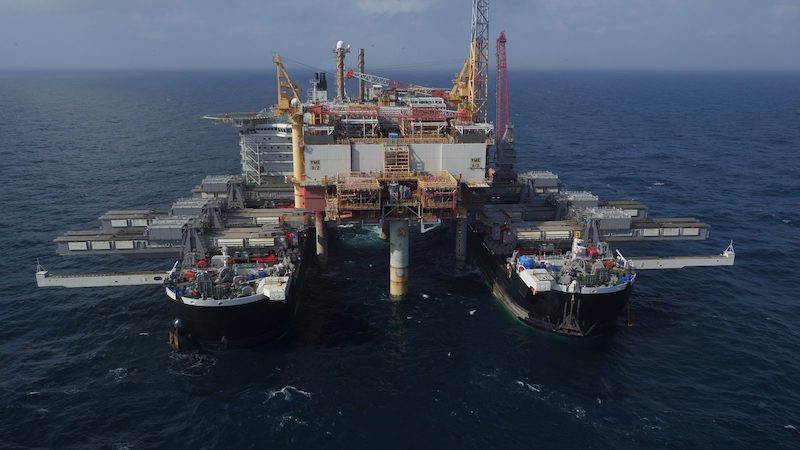As many North Sea oil and gas fields are now coming to the end of their productive lives, the industry is facing the massive, expensive and technically challenging task of decommissioning.
Shell recently announced its proposals for the Brent field, which has shut down after 40 years. This is their legal obligation. A group of environmental NGOs this week criticised Shell’s plan for a lack of detail. But before the next steps are taken, there are several myths surrounding the decommissioning process that should be considered.
The oil company pays
The following is a quote from Shell: “Shell and Esso will be paying the decommissioning costs. The tax relief we will get back is not a subsidy or a new cost to the taxpayer – it’s a refund – i.e. the tax has already been paid by Shell and Esso in previous years.”
That is spin. Shell wants decommissioning to be treated as a normal business expense. It is, but business expenses do not usually qualify for the level of relief that decommissioning receives. Further, tax relief is given on the expectation that the company will be making further profit and paying taxes – not the case with decommissioning.
The reality for the taxpayer is, if decommissioning costs come in as per the £50 billion estimate, Wood Mackenzie forecasts that oil companies will recoup roughly half of the cost through Treasury tax credits. In other words, the taxpayer will be down by around £25 billion. If the costs are higher the treasury will pay more – a huge risk to the taxpayer. The taxpayer does pay.
Weekly briefing: Sign up for your essential climate news update
There is an environmental benefit from removal
Many marine habitat experts are saying that there is little environmental benefit from removal of oil platforms; for example professors David Lusseau and John Shepherd of Aberdeen and Southampton Universities.
Indeed some of the decommissioning activities will do more environmental harm than good. This is due to seabed disruption, noise and the removal process itself being very energy intensive with consequent harmful emissions. If the architecture is left in place, it will naturally reef providing an environmental positive. The reefing concept has been used extensively in the Gulf of Mexico with the Rigs to Reefs programme. Rigs to Reefs provides an alternative to complete rig removal in which an oil company chooses to modify a platform so that it can continue to support marine life as an artificial reef.
The most pressing environmental issue of our time is global warming. If our aim is environmental benefit surely making the offshore infrastructure clean and safe and using the taxpayers’ money, earmarked for removal, to fund green energy projects would be a much more sensible option.
Removal will provide an onshore ‘jobs bonanza’
Headlines like this have been used numerous times by the media (for example here and here). Onshore activities are around 2-3% of the overall decommissioning costs. The jobs are transient; once the task is complete there is no follow on activity. There will not be a jobs bonanza.
However, the green energy option will provide many more sustainable jobs in design, fabrication and construction. The green energy stations will also provide continuous operations and maintenance jobs during their 30-40 year life.
Decommissioning is good for the economy
How can a decommissioning industry that produces nothing and uses billions of taxpayers’ money be good for the economy? The investment has no legacy – we take something to bits, we have not built a factory or provided new infrastructure to serve society and the economy. Also, much of the removal money will go to the heavy lift companies – the UK has none.
On the other hand, green energy will be UK based and unlike decommissioning it will pay taxes providing for health, education, tackling poverty and other services. Furthermore, unlike decommissioning, green energy will be providing society and the economy with an essential commodity – power for industry, electric transport and heat for homes. What does returning a fraction of a percent of the North Sea seabed acreage provide?
We must follow the Ospar directives
Ospar (the Convention for the Protection of the Marine Environment of the North-East Atlantic) is the mechanism by which fifteen Governments of the western coasts and catchments of Europe, together with the European Community, cooperate to protect the marine environment of the northeast Atlantic.
As well-intentioned as Ospar is, the directives are taking the nation to a very poor outcome. So why are we not challenging them? We know so much more know than when the directives were agreed in 1998 – the consequences of global warming for instance. Even Ospar should be able to see green energy as having a much better outcome for the international community.
The Oil and Gas Authority is maximising economic recovery
The Oil and Gas Authority’s (OGA) role is to regulate, influence and promote the UK oil and gas industry in order to achieve their statutory principal objective of maximising the economic recovery of the UK’s oil and gas resources. It is an executive agency of the Department for Business, Energy and Industrial Strategy (BEIS).
How can the current plans for decommissioning be maximizing economic recovery? The OGA has an objective of reducing removal costs by 30%. This is a good aim, but why remove in the first place when we can do so much more to maximize the economic benefit to the UK by using the money in green energy?
Sadly BEIS and the OGA have told me that their role is to ensure OSPAR is followed and not to challenge it. Surely if we are witnessing a very poor use of taxpayers’ money the OGA should be lobbying Westminster. That’s not their job I’m told.
Tom Baxter is a senior lecturer in chemical engineering at the University of Aberdeen
